Local Government CRM solutions streamline interactions between city officials and the public, enhance service delivery, and improve community engagement.
Modern Local Government CRM platforms facilitate efficient communication, automate routine tasks, and provide comprehensive data analytics. These solutions help manage citizen requests, optimize workflows, and ensure timely responses, supporting better public service and accountability across municipal operations. By integrating multiple channels such as emails, phone calls, and social media within a single interface, these systems also improve transparency and operational efficiency.
What critical features should be considered?Local Government CRM solutions are implemented in various sectors such as city councils, public works, and emergency services. These platforms help local officials manage services like waste management, public safety, and community health by facilitating seamless interaction and data sharing across departments.
Investing in Local Government CRM is advantageous for organizations aiming to enhance public engagement, increase operational efficiency, and provide better, more responsive services to their communities.





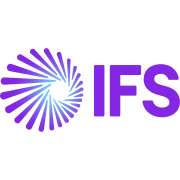
















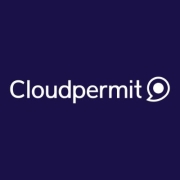










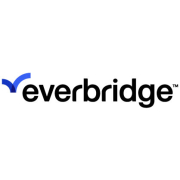
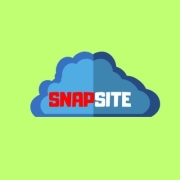

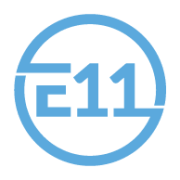
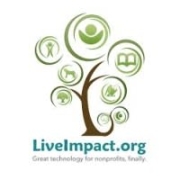







Several different types of Local Government CRM systems are available, each with unique features and functionalities.
Local Government CRM is a category of software designed to streamline and enhance the interactions between local government organizations and their constituents. It provides a centralized platform for managing and tracking various aspects of citizen engagement, service requests, and communication channels. Here is an overview of how Local Government CRM works:
1. Constituent Database: Local Government CRM maintains a comprehensive database of constituents, including their contact information, demographics, and interactions with the government. It allows for easy searching, sorting, and filtering of constituent records based on various criteria.
2. Service Request Management: Citizens can submit service requests through multiple channels, such as phone, email, or online forms. Local Government CRM captures and categorizes these requests, assigning unique identifiers for tracking purposes. It enables government officials to prioritize, assign, and monitor the progress of service requests, ensuring timely resolution.
3. Communication Management: Local Government CRM facilitates efficient communication with constituents through various channels, including email, SMS, and social media. It enables personalized and targeted messaging based on constituent profiles and preferences. Government officials can send notifications, updates, and alerts to keep citizens informed about important events, policies, or service disruptions.
4. Citizen Engagement: Local Government CRM provides tools for engaging citizens in community initiatives, surveys, and public consultations. It allows for collecting and analyzing feedback, opinions, and suggestions from constituents. Government officials can use this data to make informed decisions, improve services, and address community concerns.
5. Reporting and Analytics: Local Government CRM generates comprehensive reports and analytics on various aspects of citizen engagement, service delivery, and performance metrics. It provides insights into trends, patterns, and areas for improvement. These reports help government officials in strategic planning, resource allocation, and performance evaluation.
6. Integration and Collaboration: Local Government CRM can integrate with other systems, such as GIS (Geographic Information System) or financial management software, to enhance data sharing and streamline processes. It enables collaboration among government departments, allowing seamless coordination and information exchange.
Here are the key benefits of implementing a Local Government CRM system alongside useful functions that allow government agencies to reap these benefits:
1. Efficient citizen service management:
- A centralized citizen database helps local governments maintain a comprehensive database of citizen information, including contact details, service requests, and interactions.
- Streamlined service requests through automation, which helps track citizen service requests, ensuring prompt and accurate resolution.
- Case management, which helps local governments to efficiently manage and track cases, ensuring timely follow-ups and improved citizen satisfaction.
2. Enhanced citizen engagement:
- Online self-service portals through which citizens access information, submit service requests and track their status, reducing the need for manual intervention.
- Communication channels like email, phone, and social media enable local governments to engage with citizens through their preferred channels.
- Automated notifications and alerts keep citizens informed about service updates, events, and important announcements.
3. Data-driven decision-making:
- Local Government CRMs offer robust analytics and reporting, providing local governments with valuable insights into citizen behavior, service trends, and operational performance.
- Through performance monitoring, CRMs allow local governments to monitor KPIs to assess service quality, identify bottlenecks, and make data-driven improvements.
- Through resource allocation, CRMs help local governments allocate resources effectively, ensuring optimal service delivery and cost-efficiency.
4. Collaboration and coordination:
- CRM facilitates interdepartmental coordination within local governments, enabling them to share information, coordinate efforts, and provide integrated services.
- With workflow automation, CRM automates routine tasks and workflows, reducing manual effort and improving interdepartmental efficiency.
- CRM leverages knowledge sharing by serving as a centralized knowledge repository, which allows local governments to capture and share best practices, policies, and procedures across departments.
5. Compliance and transparency:
- CRM helps with regulatory compliance so that local governments adhere to regulatory requirements, ensuring proper documentation, audit trails, and data security.
- CRM improves transparency and accountability, where local governments can maintain transparent communication with citizens, providing them with access to information, progress updates, and service history.